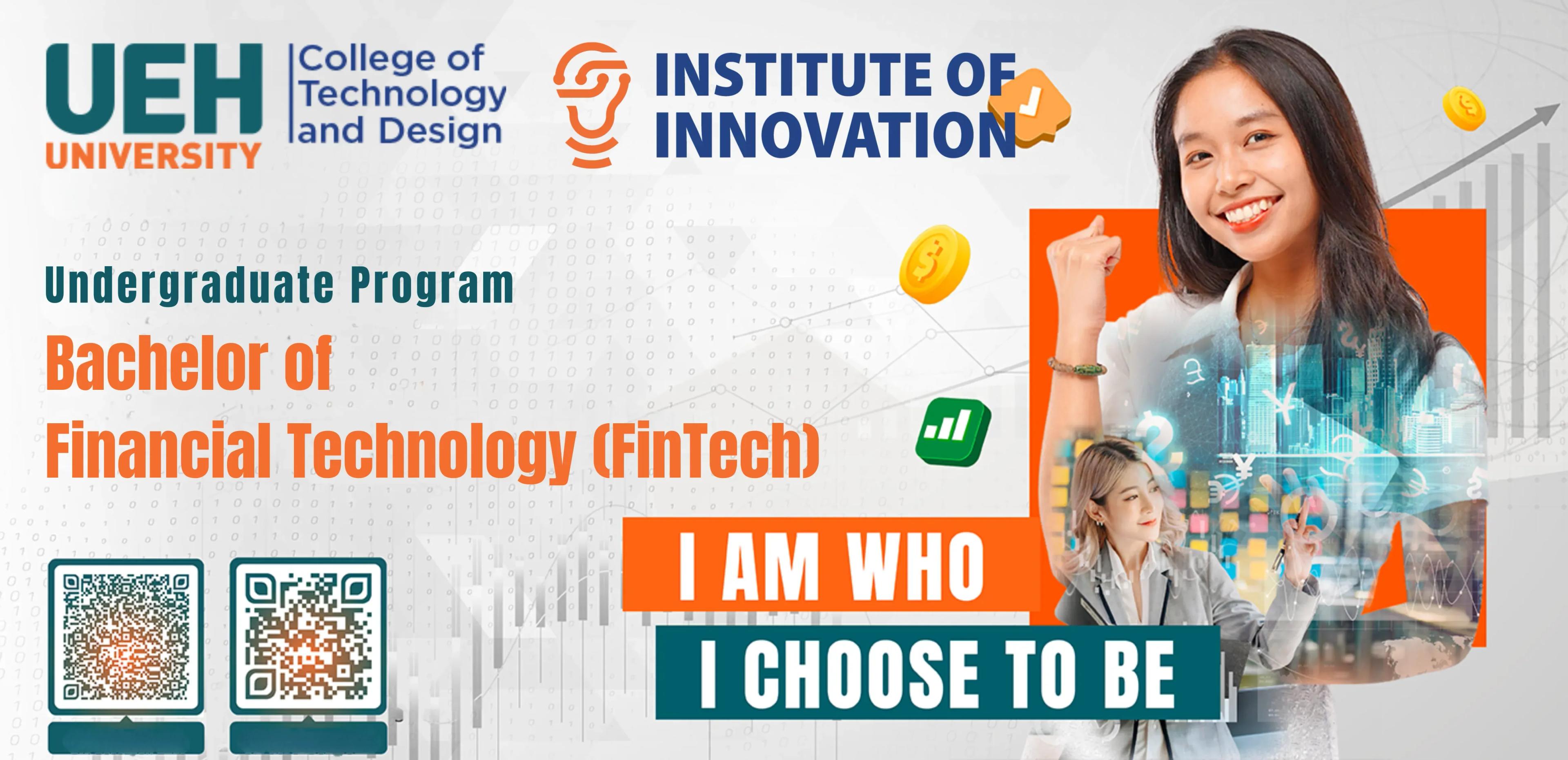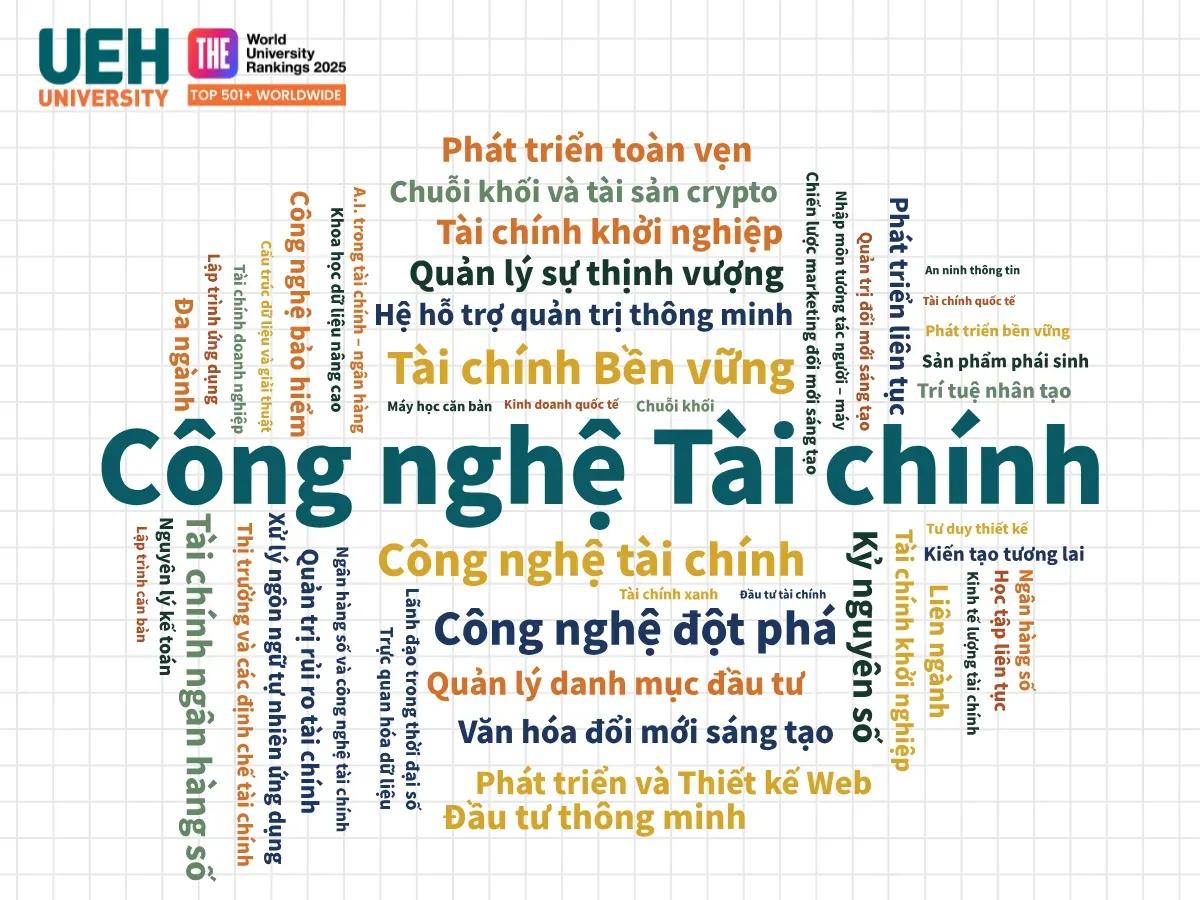Top 301+ in the Best Universities in Asia
fintech
Directly to

Admission and Enrollment

Upcoming events

Chat with our students

Financial Technology (FinTech) combines finance, data, and software to build safer, faster, and more inclusive financial services. At UII, you will learn by doing through project studios with industry mentors, from building payment prototypes to analysing transaction risk. The curriculum blends core finance with programming (Python/SQL), data analytics, UX for financial products, and compliance. By graduation, you will have a portfolio of projects and the skills to work in banks, fintech firms, and startups or continue with advanced study.

After graduation, students will be qualified to work at banks, finance companies, insurance firms, investment funds, venture capital funds, securities companies, and multinational corporations developing and delivering technology-driven solutions, as well as at public or private science-and-technology transfer organizations and FinTech startups.
Study mode: Advanced program These programs are designed with reference to the world’s Top-200 universities, developed in consultation with experts from international professional associations, and undergo quality reviews every 2–5 years.
See the tuition fees for advanced programs
Eligible applicants / Target learners: High-school graduates.
FinTech Curriculum
| Semester | Course type | Course (English translation) | Credits |
Semester 1 (20 credits) | Compulsory | Marxism–Leninist Philosophy | 3 |
| Compulsory | Marxism–Leninist Philosophy | 2 | |
| Compulsory | General English | 4 | |
| Compulsory | Entrepreneurship | 1 | |
| Compulsory | Soft Skills | 2 | |
| Compulsory | Introduction to Psychology | 2 | |
| Compulsory | Applied Mathematics | 3 | |
| Compulsory | Microeconomics | 3 | |
Semester 2 (20 credits) | Compulsory | Marxist–Leninist Political Economy | 2 |
| Compulsory | History of the Communist Party of Vietnam | 2 | |
| Compulsory | English for Technology, Media & Design – HP1 | 3 | |
| Compulsory | Sustainable Development | 2 | |
| Compulsory | Introduction to Data Science & Artificial Intelligence | 2 | |
| Compulsory | Applied Statistics | 3 | |
| Compulsory | Macroeconomics | 3 | |
| Compulsory | Introductory Programming | 3 | |
Semester 3 (22 credits) | Compulsory | Scientific Socialism | 2 |
| Compulsory | English for Technology, Media & Design – HP2 | 3 | |
| Compulsory | Design Thinking | 2 | |
| Compulsory | Principles of Accounting | 3 | |
| Compulsory | Research Methods | 3 | |
| Compulsory | Introduction to Machine Learning | 3 | |
| Compulsory | Data Structures & Algorithms | 3 | |
| Compulsory | Financial Theory | 3 | |
Semester 4 (21 credits) | Compulsory | Application Programming | 3 |
| Compulsory | Applied Natural Language Processing | 3 | |
| Compulsory | Blockchain & Crypto Assets | 3 | |
| Compulsory | Corporate Finance | 3 | |
| Compulsory | Financial Econometrics | 3 | |
| Compulsory | Financial Investments | 3 | |
| Compulsory | Innovation Management | 3 | |
Semester 5 (15 credits) | Compulsory | Technology & Cybersecurity Law | 3 |
| Compulsory | AI in Finance & Banking | 3 | |
| Compulsory | Automation in Financial Technology | 3 | |
| Compulsory | Governance, Responsibility & Ethics in Finance | 3 | |
| Compulsory | Financial Technology | 3 | |
Semester 6 (17 credits) | Compulsory | Information Security | 3 |
| Compulsory | International Finance | 3 | |
| Compulsory | Capstone Project | 2 | |
| Elective | Culture of Innovation | 3 | |
| Elective | Innovation Marketing Strategy | 3 | |
| Elective | Leadership in the Digital Age | 3 | |
| Elective | New Venture Projects | 3 | |
| Elective | Data Visualization | 3 | |
| Elective | Advanced Data Science | 3 | |
| Elective | Digital Transformation in Business | 3 | |
| Elective | Data Mining | 3 | |
| Elective | Product Management & New Product Development | 3 | |
| Elective | Mobile Application Development | 3 | |
| Elective | Portfolio Management | 3 | |
| Elective | Financial Markets & Institutions | 3 | |
| Elective | Financial Risk Management | 3 | |
| Elective | Derivatives | 3 | |
| Elective | Entrepreneurial Finance | 3 | |
| Semester 7 (10 credits) | Compulsory | Internship & Graduation – FE | 10 |

Program learning outcomes (PLOs)
Program learning outcomes (PLOs)
1. Program Learning Outcomes – Knowledge
- Understand the fundamentals of mathematics, computer science, data science, the national political–social–legal context, and sustainable development; from there, develop products in technology and finance and address issues arising in financial technology. (2)
- Apply knowledge of technology, finance, business, and innovation to solve comprehensive, multidisciplinary and interdisciplinary problems in financial technology. (3)
- Apply solid theoretical and applied foundations in the field of financial technology. (3)
2. Program Learning Outcomes – Skills
- Demonstrate leadership qualities, collaboration, and effective teamwork to manage and inspire diverse groups in multidisciplinary, multicultural fintech workplaces. (3)
- Demonstrate critical and constructive thinking and develop effective solutions to fintech problems. (3–4)
- Analyze data, explain results, and solve fundamental fintech problems using quantitative and qualitative methods with tools such as digital technologies, artificial intelligence (AI), big data, blockchain, deep learning, machine learning, and virtual/augmented reality (VR/AR). (3–4)
- Understand the global environment—including politics, economics, culture, technology, international markets, and cross-cultural communication—to integrate and contribute to sustainability. (2)
- Communicate (use, discuss, interpret) professionally about financial technology in a foreign language at an intermediate level or above. (2–3)
3. Program Learning Outcomes – Autonomy and Responsibility
- Identify the importance of ethical conduct and professional and social responsibility in fintech practice. (4)
- Prioritize environmental and social considerations when solving fintech problems. (4)
- Develop continuous self-improvement toward community engagement, social responsibility, and sustainability. (3)
Additional graduation requirements
- Foreign-language proficiency at Level 3/6 of Vietnam’s Six-Level Foreign Language Proficiency Framework (equivalent to TOEIC 500).
- Information Technology certificate per Decision No. 2322/QĐ-ĐHKT-ĐBCLPTCT dated 08/07/2024 (Regulation on undergraduate IT knowledge learning outcomes at the University of Economics Ho Chi Minh City).
- Physical Education certificate.
- National Defense Education certificate.
Career opportunities
After completing the program, graduates can take on roles such as:
- Product Manager (Digital Banking) / Business Analyst (FinTech/InsurTech)
- Senior Product Manager / Senior Business Analyst
- Senior Manager, Technology Transformation (Financial Services) / Head of Financial Risk Control – Digital Transformation
- Director – Financial Services & Business Transformation / Senior Consultant | Technology Consulting (Change Management)
- Account Manager, FinTech – Cryptocurrency – Blockchain
Visit us
Do you want to stay informed about important information about studying at TU/e and upcoming events? Then create an account in MyStart@TU/e!
Quicks Link
UEH
Contact Info

(+84) 89 913 99 13

uii@ueh.edu.vn



